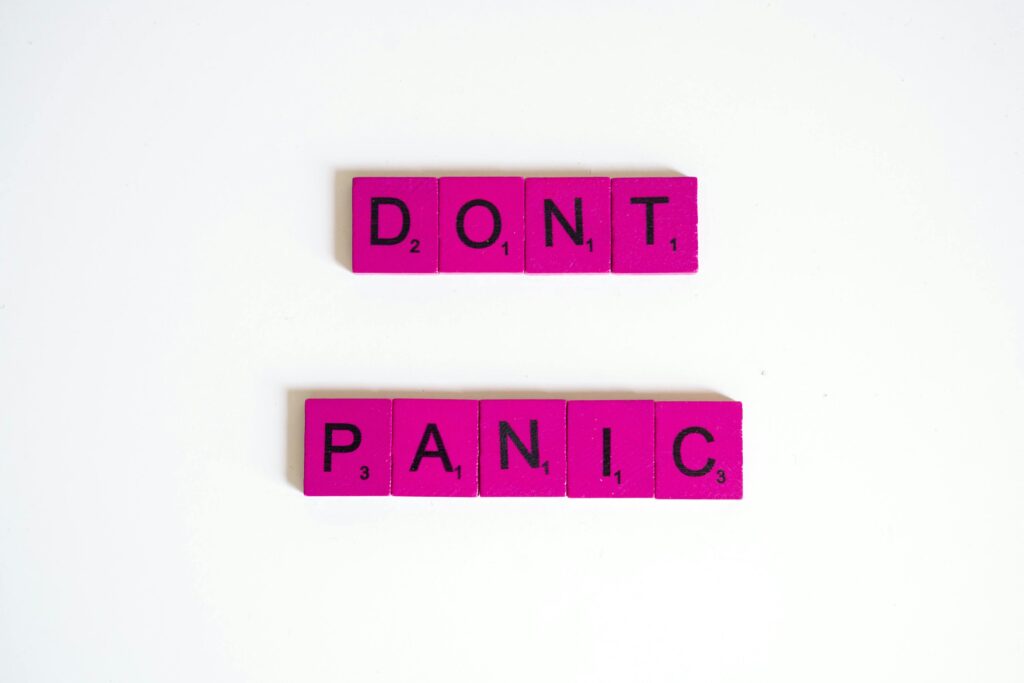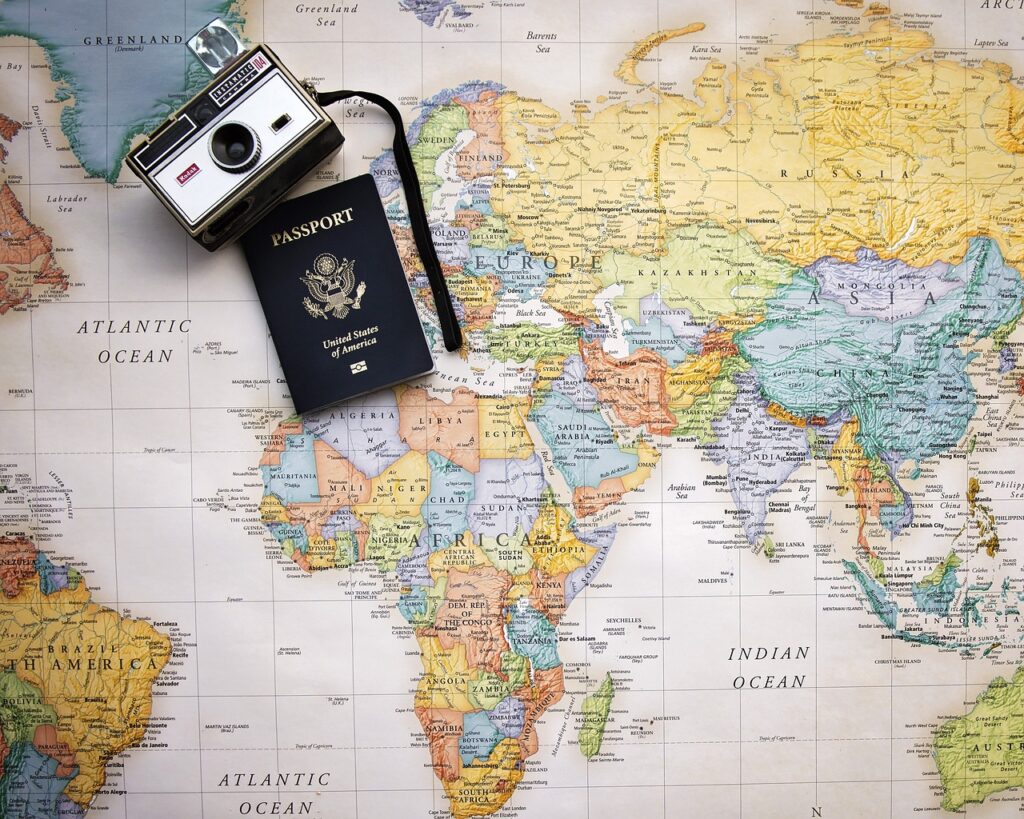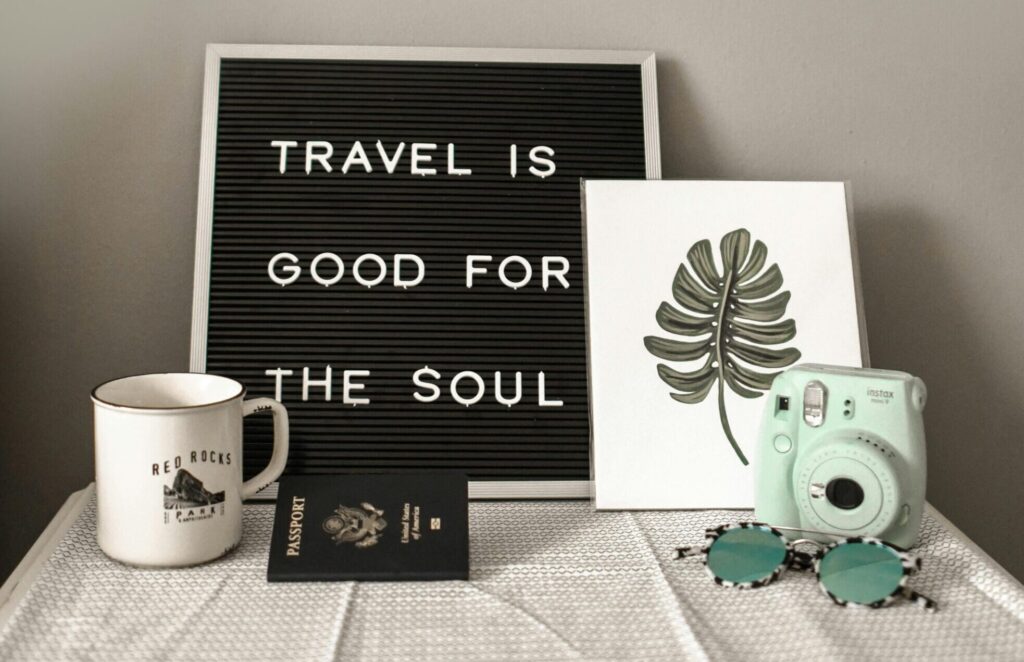I knew I was going to write this at one point. Perhaps just not this shortly into my trip. Or perhaps I did?
At the beginning of this trip I was in contact with someone I knew from a previous trip, that has this too. We talked about what it‘s like to travel with panic attacks, what triggers us, and so on. Is it bravery or stupidity, to go travel even though you are in one way or another restricted? I believe it‘s somewhere in between those two - but it‘s good to do your thing anyways. That I am sure of.
Do I still get panic attacks? Yes. How do I cope with it? Well… that’s a more complicated answer.
Let me try and roll this thing up from the start. Here‘s what I know so far.
What makes me more prone to having a panic attack?
Stress - could be the simple thought about how bad it would be to get sick on this bus now, having stayed in cities for too long… all of these equal stress for me.
Climate - Arriving on the carribean coast, being hit by this wall of humid heat threw me back. I find that this type of weather gives me a lot of the same symptoms as a panic attack would. Trembling, slightly higher heart rate, fatigue, a feverish feeling, headaches and sometimes difficulty eating and/or stomach pains. Same goes for high altitudes. When I got to Bogotá, which is at 2650 m, I noticed I was trembling, exhausted, had a bit of a headache.
Wrong decisions - if I did something even though I knew it was not the right choice, like staying somewhere longer, going out for dinner with someone I‘m not quite vibing with, or talking too long to one of the street vendors that make me feel uncomfortable.
Too much - I quickly found that I need a lot of down time. Which makes sense, I guess, considering that this trip is going to last a while. At one point, you just can‘t digest this many new experiences and people and impressions. The busier a place is, the worse it is. This includes positive as well as negative impressions, meaning I could have too much fun with new found friends or too much hustle caused by catcalling and people on the streets.
Sleep - I stay in hostel dorms. It‘s always noisy. There’s always someone snoring. It’s not my own mattress and pillow. I sleep next to my bag of valuables, a bottle of water and depending on the situation, even more stuff. I don’t know on which side the light switch is, and once I finally adjust and remember, it‘s time to move again.
Sickness - this is a big one for me too. I knew early on that being ill or just the thought of it makes me spiral. Here, I am eating strange food every day, drinking water from questionable sources, touching all kind of gross stuff and I get mosquito bites, which, where I am, do carry diseases.
So, how do I deal with it? I have found a few methods that seem to work well for me.
1 Remove myself from the situation. Which isn‘t always possible, or easy. But, when I notive something brewing I try to leave the place, and best case scenario I go lay down in my bed for a few minutes, with my noise cancelling headphones in, and just listen to my breathing.
2 Go through with it. I find that it‘s way more tiring to be fighting against a panic attack than to just wait for it to pass. I try to allow it to be there, accept it, keeping in mind that this is irrational and it will pass. I smile and focus on big deep breaths, and simply wait for it to pass.
3 Think ahead. I try to listen to the signals I get every now and again, and act accordingly. Can I continue? Start a new activity? Is it better to go back and nap? Should I sit down for a coffee somewhere for a short break? Do I need to talk to someone about something?
4 Emergency kit. I always always always carry my emergency medication, a paper bag in case of hyperventilation, water, chewing gum, a strong essential oil (smelling this takes my mind off of the panic for a moment) and candy in case my blood sugar is low. I don‘t often need any of these things. Simply knowing that I have them on hand if I did need it helps a lot.
5 Be open. If anything happens and I‘m with people, I just tell them. I say hey, I‘m sorry, I‘m having a panic attack (soon), I need a moment. Every single person so far has been really understanding and asked if I needed anything, if there was anything they could do for me. People are kind, always remember this. Calling a close friend or family member or a therapist could of course also be a good option.
6 Distraction. Sometimes I let my thoughts spiral for a bit too long and I find myself showing symptoms without any real reason. I have a few games on my phone that I play only in these situations, to keep my mind off of it. It could be an easy sudoku or one of those strangely addicting sorting games. If I can‘t to any of that, I think of all the cities I can name that start with an A, then B, then C and so on. This works well for me because I‘m a geography nerd. I‘ve also heard from people doing easy math, naming plants or animals instead of cities or trying to find on thing around you for every one of your senses.
7 Conscious exposure. I can‘t forever stay in my tiny comfort zone bubble. At first, it was enough for me to be here, in South America, where everything is new to me. But then, I am here now, and I want to do stuff. Every day, I push myself a little further. Not every day is the same though, and this is important to understand. Sometimes, going out for a short walk and then read my book all day, is everything I have. Other days, I feel way better and have a lot more energy for being social, I might even join the other travelers for a beer or two at night.
8 Acceptance. Whatever it is, I accept that it is this way. If I can‘t do something, I don‘t do it. If I have to leave, I leave. It‘s hard, but it‘s for the greater good. I‘m in this for the long run, and no adventure, no conversation, is ever worth throwing me back to where I came from. If I can‘t do it today, I might be able to do it tomorrow. And if not, there is a good reason behind this and that is okay, too.
How do I know in which situation I am and what I need to do to deal with it? More often than not, I don‘t. I try to rationally think about what happened leading up now and then I simply start with one coping mechanism. If this isn‘t working, I move on to the next, and the next, until I find something that feels right.
The most important thing: Always remember that your thoughts are just thoughts - and even if they come with physical symptoms that feel very real, they aren‘t, because as soon as the mental situation clears, the physical stuff goes away as well. And: Don‘t fight it. I know it‘s easier said than done, and it takes practice, which is surely the last thing you want to do. But this is one of the key lessons that has actually helped me deal with a lot of different emotions as well. Strong anger, stress, disappointment, sadness… I always try to sit with the emotion, let it be, and move on.
You probably read this all the way to the end because you, at least to some extent, know what I am talking about. If this is it, I would like you to know a few more things.
I know how hard it is. How physically and mentally exhausting. How much fear you feel and how much life you think you are losing.
I know how difficult it can be to try and listen to the different signs, aches and pains. So many factors influence your wellbeing and since we‘re talking about a mental health issue, there’s often no way to tell if certain aches or feelings are real or made up and just in my head. But, with any or some of the coping methods I found for me, I am usually able to understand it. And then, next time a similar situation happens, it will be easier to identify and therefore easier to cope with.
I got to a point, using the methods I talked about above, where I can deal with my situation pretty good. I‘m not saying it‘s easy, but it works. And it works to a level where I can enjoy myself, my life, my trip. I‘m telling you this for one reason only: Because I know that if I can do it, you can, too.
It takes time, as any good thing does. And believe it or not, but your situation might be a good thing. For me, it certainly is. If this hadn‘t happened now, I wouldn‘t have made the decisions I have made and I wouldn‘t be here as the person I am today. I would still put every little thing above my own wellbeing, which also means that if someone needs me, I cannot fully be there for them. I learned so many things about myself and how to deal with being me. These lessons are worth more than their weight in gold.
If you can, perhaps in a good moment, focus on the bright side. Try to think about what you have learned so far, about your mind, body, soul. How many beautiful interactions you had because you opened up to the people close to you. How great life actually was before you needed to start thinking about these things, which will eventually lead you to understand how much better it could be with everything you learned when you get to a point where you don‘t need to constantly think about the attacks anymore.
I’m a work in progress. I always will be. As are you - I know you can do this. Feel free to message me if you would like some more personal insights or if you would like to talk about your own situation.



